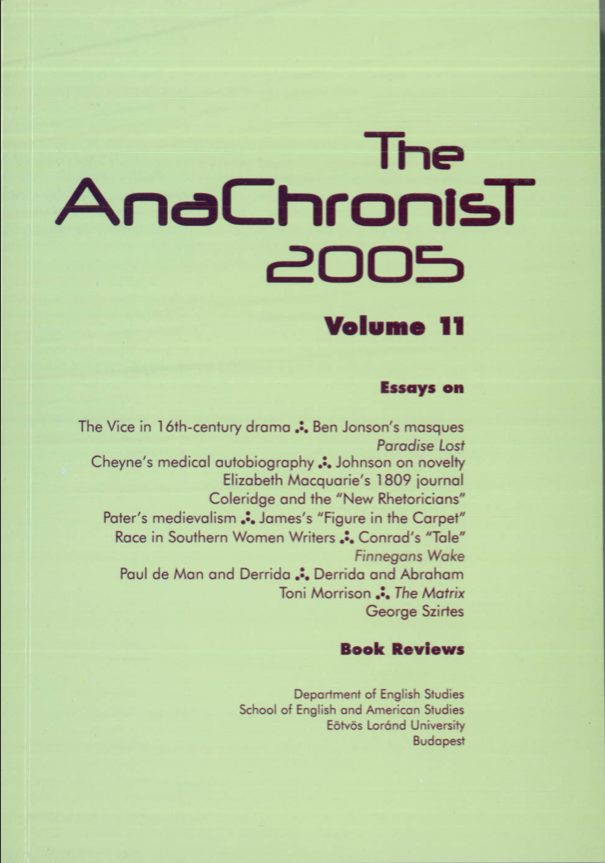Fall and Redemption
Adam and Eve's Experience of Temporality after the Fall in Paradise Lost
DOI:
https://doi.org/10.53720/VFHJ2647Abstract
The current essay is the third paper in a long drawn-out series that examines the temporality of created beings in Paradise Lost. The first paper (The AnaChronisT 1996) discussed the pristine condition of humans in an Eden characterised by dynamism rather than stasis. The second article (The AnaChronisT 2004) examined the temporality of Milton's angels, both loyal and fallen. The present investigation returns to Adam and Eve but looks at their life in time as we know it. I will show that the first human pair's initial reaction to the altered situation, their perception of time and despair after the fall parallel those of the fallen angels. The destinies of rebel angels and of disobedient humans diverge in that God bestows grace on the latter and reverses their fate, which betokens time's new significance for humanity as the potentiality to be redeemed. As part of the redemptive process, Adam and Eve must come to terms with death, foreknowledge and history. While the 1996 paper mostly concentrated on the paradisal books, and the previous essay on books i-ii and v-vi, I now turn to the last third of the epic. Taken together, the three articles thus provide a sustained reading of the whole poem.

